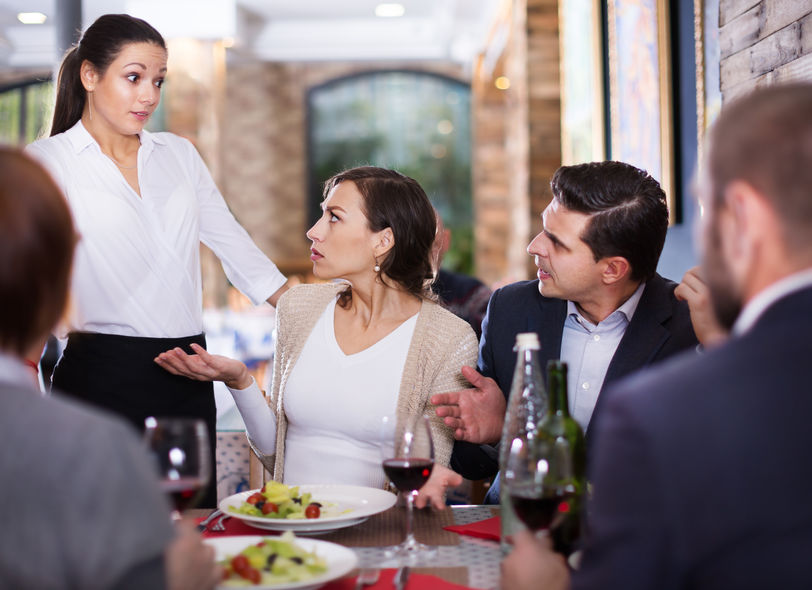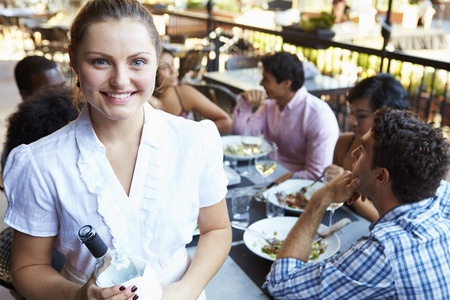What Restaurant Servers Would Advise Diners NOT to Do

Many of my relatives have been servers in restaurants at some point in their lives. So, I polled them with the same question this article poses to readers. I excluded the subject of tipping, as it has its own generally recognized rules.
The main point, and one that comes up often in discussions with waitstaff, is the behavior of restaurant guests. Diners, here are the things your servers would like you to know if only they could tell you.
15 Things Servers Advise Diners NOT to Do
- Don’t be deep in conversation when the server is taking orders. If you cannot pause your conversation at the time, ask the server for a minute or two before you order. Your attention is needed during order-taking to ensure your server will relay it to the kitchen correctly, and so that you will remember what you ordered (diners who forget what they ordered are not uncommon!).
- Don’t be demanding. Servers are there to bring your food and drinks and assist you during your meal, so politeness should rule the day. Just because you didn’t time your dinner arrival well, doesn’t mean it’s okay to demand the server or kitchen to hurry things up.
- Don’t speak in harsh tones of voice. You are speaking to a fellow human being.
- Don’t put your phone or other items on the table. Servers need room to serve you.
- Don’t move the dishes around or re-arrange the table items. (Keep your glasses placed on the upper right of your plate area. Leave the bread plate to your left.)
- Don’t ignore the server’s need to place your plate in front of you. If you’re talking, pause, lean back, and let the item be served.
- Don’t write a complaint on the ticket. If something needs to be reported, do so at an appropriate time and to the appropriate restaurant staff member.
- Don’t lash out if a dish is served that you did not order. A polite request for correction will help things work out pleasantly.
- Don’t ask for several things, one at a time. Instead, say, “I’d like another fork, a child’s menu, and one more napkin. Thank you.”
- Don’t expect the server to notice that you downed your specialty drink in the first five minutes of receiving it.
- Don’t tear up napkins, sugar packets, etc., leaving paper mess behind. Keep your area neat.
- Don’t ask your server to do things that may be out of his control:
Adjusting the thermostat.
Telling the chef or anyone that they got something wrong.
Refusing to pay for extra sides that you mistakenly ordered.
- Don’t use your napkin to blow your nose or any gross purpose. Excuse yourself and take care of these tasks in the restroom.
- Don’t leave a rude written “tip” on the top of the bill or in the tip line. “Get a real job!” is not an appropriate tip.
- Don’t stay for a long time after you’ve finished your meal, especially after you’ve paid the bill. Other diners are waiting to be seated.
5 Things Servers Advise Diners to Always Do
- Pay attention to your server when he greets you, gives you his name, and offers menu information.
- Remember the Magic Words of Politeness: Please. Thank you. You’re welcome. Also, “May I have” is more kind and less demanding than “Give me.”
- Close the menu after you’ve decided what you want to order. Servers are looking for silent signals that you’re ready to order, and other times they are needed at your table.
- Ask if you need something out of the ordinary. Avoid announcing that you are changing where you are seating, or that you want something served that is off the menu.
- Be reasonable. If the bill is to be shared, keep the credit cards to a minimum. Help avoid potential confusion or delays. (Diners can work it out between themselves with cash.)
Make it a Respectful Dining Experience
All of the advice shared above falls within the virtues of being a respectful diner:
- Patience
- Kindness
- Understanding
Running a restaurant involves a lot of moving parts. While the main goal of an establishment is to make diners feel comfortable and enjoy a good meal, there is a lot going on in the background to make this happen.
Servers have many responsibilities that require their attention to details. While there should always be a non-verbal, seamless flow to the dining experience, the diner must play his crucial role to make this happen. Clear, courteously delivered communication will help ensure the pleasant dining experience everyone wants.
Make eating in a restaurant special every time by knowing you can make someone’s day with a conscientious attitude. Your server will smile the next time you come in to dine.














